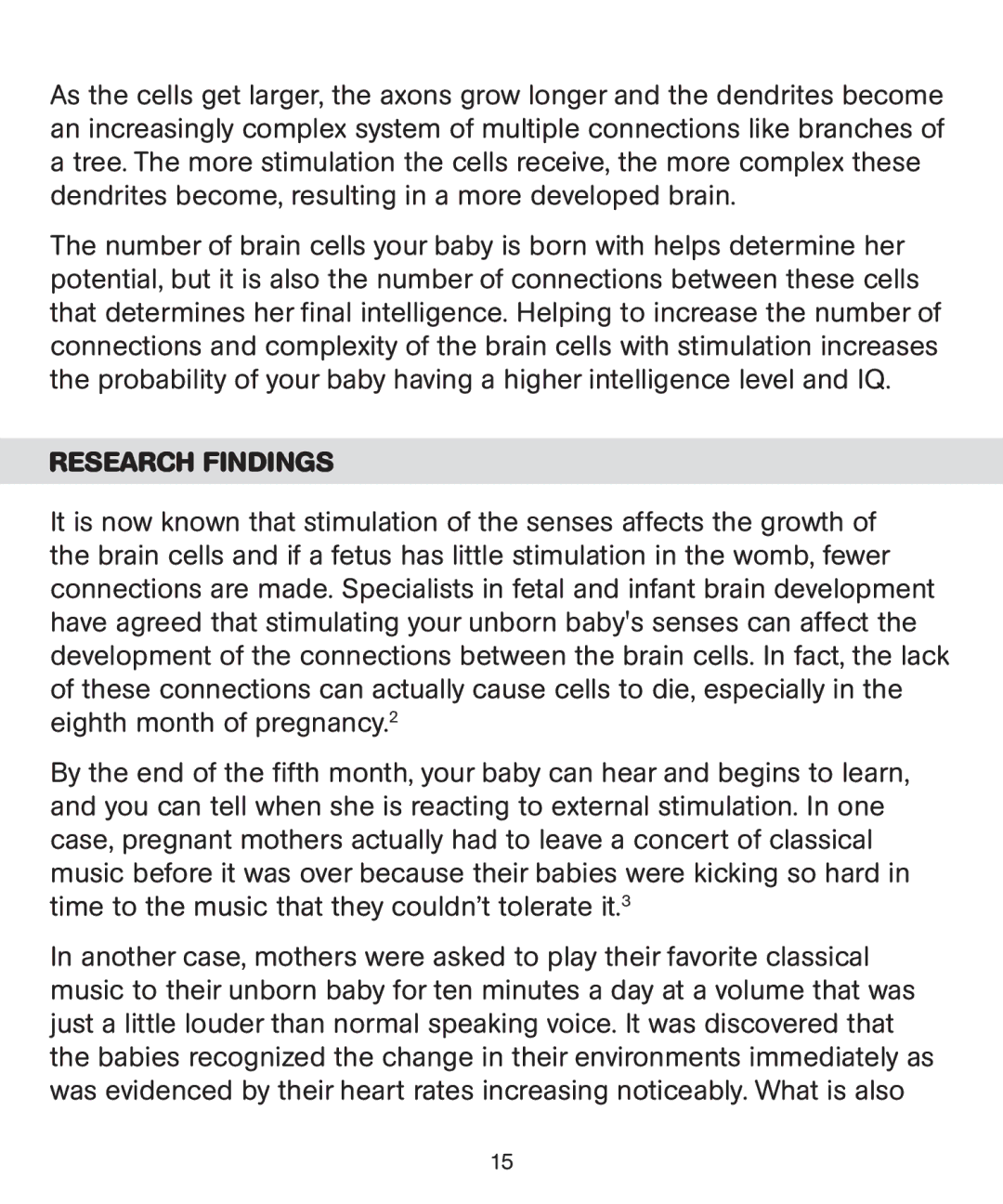As the cells get larger, the axons grow longer and the dendrites become an increasingly complex system of multiple connections like branches of a tree. The more stimulation the cells receive, the more complex these dendrites become, resulting in a more developed brain.
The number of brain cells your baby is born with helps determine her potential, but it is also the number of connections between these cells that determines her final intelligence. Helping to increase the number of connections and complexity of the brain cells with stimulation increases the probability of your baby having a higher intelligence level and IQ.
RESEARCH FINDINGS
It is now known that stimulation of the senses affects the growth of the brain cells and if a fetus has little stimulation in the womb, fewer connections are made. Specialists in fetal and infant brain development have agreed that stimulating your unborn baby's senses can affect the development of the connections between the brain cells. In fact, the lack of these connections can actually cause cells to die, especially in the eighth month of pregnancy.2
By the end of the fifth month, your baby can hear and begins to learn, and you can tell when she is reacting to external stimulation. In one case, pregnant mothers actually had to leave a concert of classical music before it was over because their babies were kicking so hard in time to the music that they couldn’t tolerate it.3
In another case, mothers were asked to play their favorite classical music to their unborn baby for ten minutes a day at a volume that was just a little louder than normal speaking voice. It was discovered that the babies recognized the change in their environments immediately as was evidenced by their heart rates increasing noticeably. What is also
15
